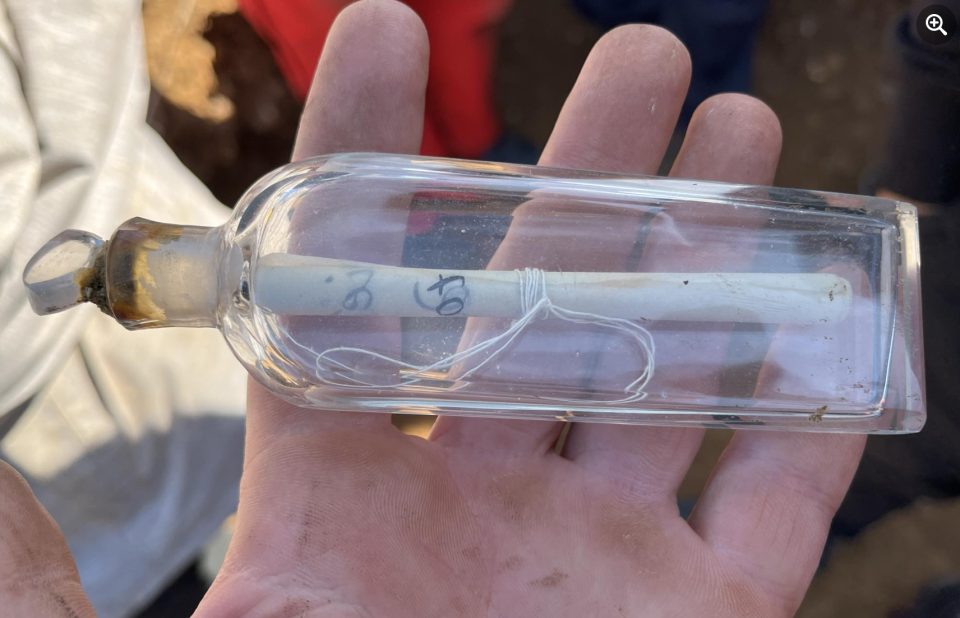Volunteers on an archaeological dig in the ruins of an ancient Gaulish village high above the cliffs in northern France this week uncovered a small glass vial —and within it a neatly rolled, 200-year-old message from a colleague from another era.
The note was written by archaeologist P.J Féret, who conducted a dig at the Cité de Limes site in January 1825, the town supporting the dig, Eu, said in a Facebook post.
Féret wrote —perhaps as inspiration to the nascent archaeologists standing in his footsteps nearly two centuries later— that he was a member of several scientific societies and he “continues his research in this entire vast compound.”


“It was an absolutely magic moment,” Guillaume Blondel, who heads the archaeological service for the town of Eu, told the BBC. “We knew there had been excavations here in the past, but to find this message from 200 years ago… it was a total surprise.”
“Sometimes you see these time capsules left behind by carpenters when they build houses. But it’s very rare in archaeology,” Blondel said. “Most archaeologists prefer to think that there won’t be anyone coming after them because they’ve done all the work!”


Municipal records confirmed that Féret conducted a first dig at the site 200 years ago.
The oldest message in a bottle ever found was 131 years and 223 days old when it was discovered, Guinness World Records said in a statement. Australians Tonya and Kym Illman found the message on Jan. 21, 2018, at Wedge Island, Australia.
A German ship captain threw a gin bottle overboard on June 12, 1886, Guinness World Records said, with a message written in ink, that contained the ship’s coordinates and details, including departure and arrival times. The note, from the Deutsche Seewarte in Hamburg, requested the finder deliver the note to the nearest German Embassy.
If authenticated, Féret’s 200-year-old message in a bottle will be the oldest ever found.
Mark Robinson won’t appear at Trump’s North Carolina rally after CNN report
Kentucky sheriff charged with killing judge faced lawsuit
New Georgia rule prompts fears of Election Day chaos
